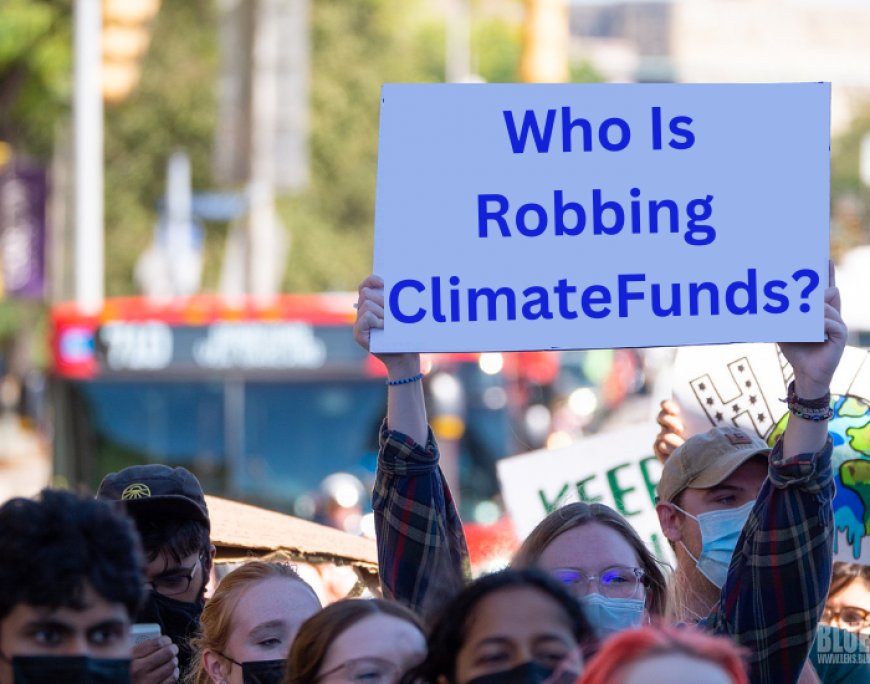Reuters investigation uncovers misuse of climate funds by wealthy nations
Reporters of the globally reputed news agency reveal that despite promising $100 billion annually, some affluent countries allocated significant amounts to unrelated projects, highlighting a pressing need for greater transparency and accountability.

Reuters journalists Emma Rumney, Irene Casado Sánchez, Jaimi Dowdell, Misato Nakayama, Sakura Murakami, and Kiyoshi Takenaka have uncovered a disconcerting truth: the funds pledged by wealthy countries to combat global warming have been diverted to inappropriate projects. While these countries promised $100 billion annually to alleviate the effects of climate change, Reuters found that significant amounts of money were channelled towards endeavours that have little to do with climate mitigation and adaptation.
Dubious allocations
The startling findings expose a series of questionable allocations. Italy, for instance, supported a retailer's expansion of chocolate and gelato stores across Asia. Meanwhile, the United States offered a loan for the expansion of a coastal hotel in Haiti. Belgium backed the production of a film called ‘La Tierra Roja’, a love story set in the Argentine rainforest. Additionally, Japan has been financing a new coal plant in Bangladesh and an airport expansion in Egypt. Astonishingly, all four countries classified these projects as ‘climate finance’, including them as part of their contributions towards reducing emissions and addressing climate-related challenges.
The total funding for these five projects amounted to a staggering $2.6 billion. While developed nations have committed to allocating $100 billion per year to climate finance, they have failed to establish official guidelines regarding eligible activities. This lack of clarity has allowed countries to interpret climate finance at their discretion, resulting in diverse interpretations and questionable choices. The absence of a uniform system of accountability has essentially created a “wild, wild west of finance,” as described by Mark Joven, Philippines Department of Finance undersecretary.
Although the coal plant, hotel expansion, chocolate stores, movie production, and airport expansion hardly seem like efforts to combat global warming, the governments funding these projects faced no restrictions in reporting them as climate finance contributions to the United Nations. Consequently, the absence of clear guidelines has facilitated the counting of unrelated projects towards climate finance goals. Despite objections from various organizations, developed nations have been resistant to implementing uniform standards for reporting climate finance.
The four countries involved have defended their support for these projects, arguing that they align with climate objectives in some way. Japanese officials consider the power plant and airport projects green due to the inclusion of cleaner technology and sustainable features. A U.S. official defended the hotel project by highlighting storm-water controls and hurricane protection measures. Belgian government representatives claimed that the grant for the rainforest movie contributes to climate finance as it addresses deforestation, a driver of climate change. Italian officials expressed their aim to consider climate in all their financing, but the specifics regarding how the chocolate stores align with this goal remain unclear.
Transparency lacking
Developed nations have reported over 40,000 direct contributions totalling more than $182 billion from 2015 to 2020, representing their efforts to meet the finance target. However, due to the lack of transparency and detailed reporting, it remains virtually impossible to determine how much of this money is genuinely being utilized to combat global warming and its impacts. Countries are not obliged to provide project details in their reports, often leaving descriptions vague or entirely absent. In numerous cases, the country receiving the funds itself is unsure how the money was spent.
This lack of transparency and accountability impedes efforts to track the impact and effectiveness of climate finance. Romain Weikmans, a senior research fellow specializing in climate finance at the Finnish Institute of International Affairs, aptly stated, “You cannot really follow the money, track the money, track the impact.”
What's Your Reaction?













































